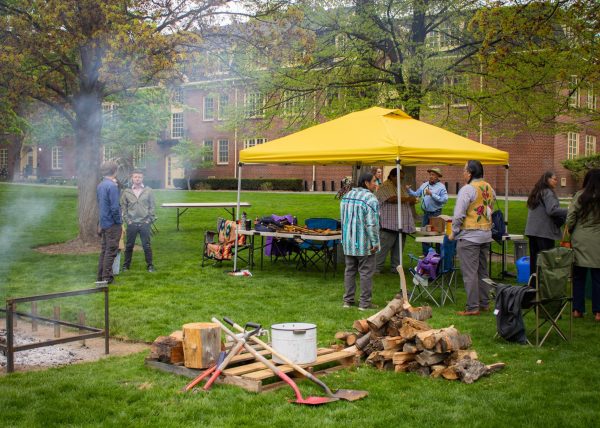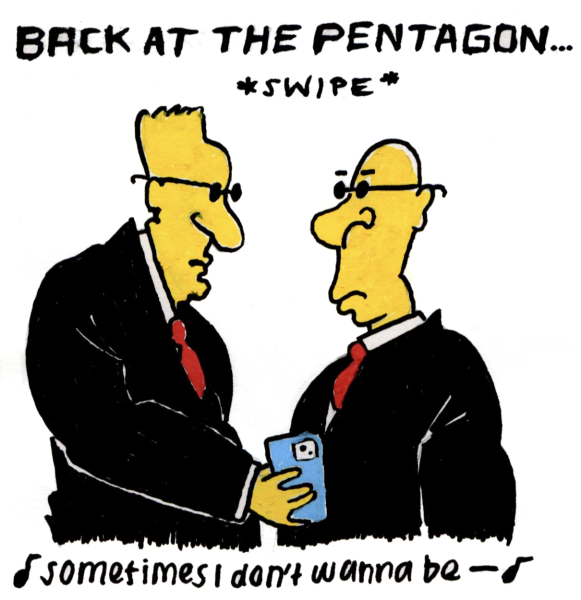The Master’s Tools: Overcoming the awkward in-between of theory and practice
May 12, 2022
As I near my senior year and the unnerving inevitability of graduating from college, I reflect on what I’ve been learning, thinking and doing in preparation for my life post-Whitman. As the college’s website describes: “Whitman College–where you can grow, think, explore, thrive and change the world for the better.” But has Whitman taught me how to change the world for the better? How will I bridge the gap between my classwork and post-grad life?
During Power and Privilege this year, I sat through an hour-long discussion led by multiple professors, half of which I’ve had classes with before, questioning how social justice looks and should look like at Whitman. They asked if there should or even could be courses, even a major, that is social justice oriented. What have we even been doing, then, if we have to have this discussion?
The theme of the Power and Privilege 2022 was “Beyond the Bare Minimum” which raises the inevitable question: Have we been learning, thinking and doing only the bare minimum this whole year? What does it say that this conversation takes place within a confined amount of time, during a single day of the year, when classes are canceled to encourage students to attend, making social justice something “outside” of class? During a single day when your friends tell you, “Yeah, I skipped the first two blocks to sleep in, the third one to do some homework, but I saw the fourth one. It was pretty cool”?
These questions are rhetorical, of course.
Shouldn’t everything be part of a “social justice curriculum”? Not just the humanities, not just the cultural pluralism. Eco-justice in environmental humanities classes. Anti-racism in art classes. Anti-ableism in SSRAs. At a liberal arts school, every major can and should incorporate social justice into every crevice of its curriculum. “Whitman College—where you can grow, think, explore, thrive and change the world for the better.”
But I’m not a professor with insight into creating course curriculum. And I’ve skipped out on moments I should’ve shown up for. Whitman tries. Whitman is trying. And there’s only so much Whitman can do as an institution founded by prejudice, racism and colonialism. No matter how much it “prides itself on its independence from sectarian and political control”, it will always inherently be a political space, and its failure to recognize that is one sign that it can’t solve itself. So what am I trying to say, then?
I guess one thing I want to get across is that as individuals, we have the power to do our own work in reforming ourselves easily and ethically. Individual efforts toward abolition, equity, social revolution, etc. get overlooked when wanting to confront systemic issues, as it is true that systemic issues feel like they can only be solved within or by the system itself. But it’s the revolutions run by the people and for the people that spark ideas, change and hope. Just look into Chris Smalls.
We lose precious time, resources and energy by begging institutions like Whitman to fix themselves. It is Whitman’s responsibility to fix Whitman. But institutions founded on inequity and injustice can and will never be able to fully, faithfully reform themselves, and we—as students, faculty, employees, citizens—can’t fix them through their own systems, or however that Audre Lorde quote goes.
If you’re reading this, you’ve got some form of access to the internet. The World Wide Web is a big place. Plenty of resources for you to learn, buy, say, do what you need to do. Pull up Google.com (or Ecosia.org, it’s free) and dig into the resources that are nearly being hand fed to you. Lists of free resources for conceptualizing and implementing police abolition. Apps and browser extensions to learn the languages of marginalized communities or to protect yourself and others from transphobia on the internet.
Tumblr posts and tweets and articles upon articles with literal step-by-step guides on how to be an ally for whoever you’re trying to unite with. Links to organizations and individuals that you can share some of your extra change with. Instagram accounts sharing the Venmo usernames of people in need and circulating resources. Fellow Whitman students with GoFundMe campaigns for one reason or another (just ask around). Whitman’s CCEC has been screaming out for volunteers for programs in Walla Walla on a weekly basis. You can get international with it. And this list is nowhere near exhaustive.
Social justice can be exhausting because of how inexhaustible it is. Creating structure and boundaries around it, such as making it a curriculum or a student-run club, can be tempting. But largely ineffective. Because social justice is something that can and should be incorporated into our everyday moments. When we ask Whitman to edit its course catalog, without stepping outside of school and making movement, we are unconsciously restricting something that is a lifestyle to an academic thesis. We get caught in the awkward in-between of theory and practice.
For a lot of us, Whitman becomes our entire world during these four years. We live, eat and sleep here. We isolate ourselves within it, waiting until after graduation to think and do bigger, to participate in the “real world.” Go to class, but also open up your browser, visit your local library and listen to people. We have the tools. We can’t restrict our sources of information to a course catalog. We can’t wait around for Whitman to tell us what to do like sitting ducks. Take your theory off of campus and apply it to the internet, to your job and volunteer work, to your everyday life and to people in your own neighborhood.
Has Whitman taught us how to change the world for the better? In many ways, yes. In many ways, it has taught us what we don’t want to see in the world.
However, to truly “change the world for the better” and to change Whitman, we can and must bridge the gap between theory and practice by stepping outside Whitman to learn from resources that are everywhere and anywhere if you just look.






